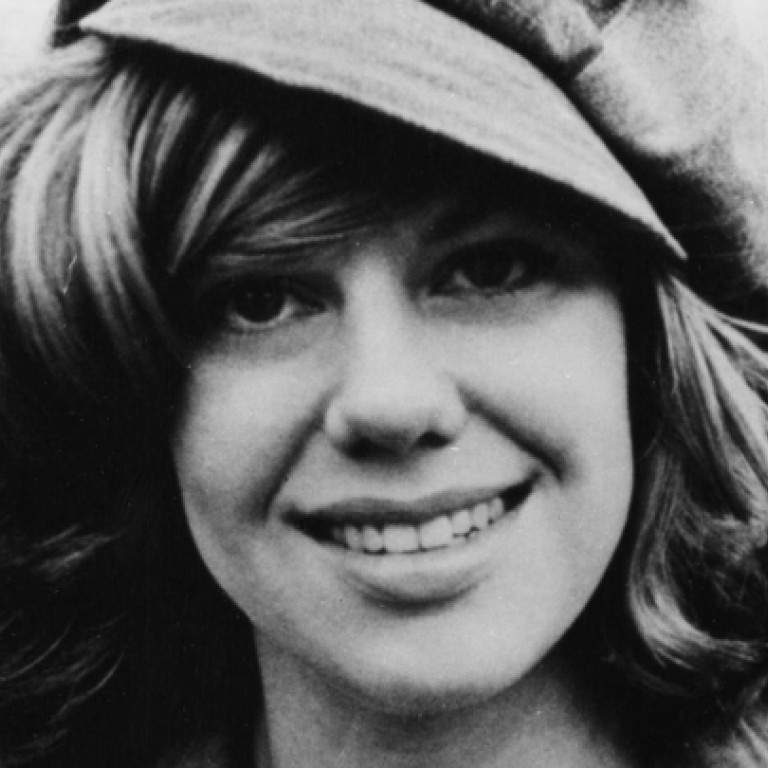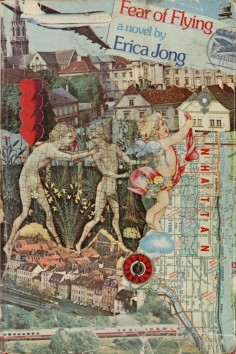
In full flight: Erica Jong
The groundbreaking 'Fear of Flying' is 40 years old this year and author Erica Jong, still resolutely feminist, is full of ideas for new projects, writes Doretta Lau
Erica Jong - author of the 1973 best-selling novel - posed the following question last month on Twitter: "When you have your 15 minutes of fame, you're very busy, but what happens after?"
For Jong, 71, what happened after are four additional decades of success. To date, she has published 22 books, including seven volumes of poetry. She has edited an anthology, .
- a groundbreaking exploration of female sexuality that caused a scandal in its day - has sold 27 million copies, and her publisher will reissue a 40th anniversary edition in October. As for her personal life, she has been married four times and has a daughter, author Molly Jong-Fast.

This week, Jong will be speaking at the Hong Kong Book Fair as part of the panel "How and What and Why do Writers Write?" alongside Jung Chang and William Shawcross.
The first time I heard of Jong, I was in a university literature seminar during the late 1990s. Perhaps we were discussing Charlotte Bronte or Jane Austen or Jean Rhys - there were very few women on our reading list even though the professor was a woman.
At that time it was still fashionable to bring French philosopher Jacques Derrida or Dr Jacques Lacan into every discussion; this was slowly killing my interest in studying literature, but I didn't want to seem anti-intellectual. That afternoon, one of my outspoken classmates somehow turned the conversation to Jong and the phrase "zipless f**k." I wrote in my notebook, "read ".
That week, I tossed aside by Derrida and breezed through , which opens with a tremendously funny scene: "There were 117 psychoanalysts on the Pan Am flight to Vienna, and I'd been treated by at least six of them. And married a seventh. God knows it was a tribute either to the shrinks' ineptitude or my own glorious unanalysability that I was now, if anything, more scared of flying than when I began my analytic adventures some 13 years earlier."
So just what does this hit novel mean to its author?
Honesty is the only thing that matters in literature. If you want to be an entertainer, you might as well write tent-pole movies about comic-book heroes
"What has always meant to me is the danger of telling the truth and the necessity of it," says Jong. "I was terrified writing it and went through great praise and great blame when it first came out. You don't always get praised for being honest - you may even wind up in jail - but writers who don't tell the truth don't last.
"Honesty is the only thing that matters in literature. If you want to be an entertainer, you might as well write tent-pole movies about comic-book heroes. If you want to write about human beings, you need to honour their humanity. Otherwise, we will eventually have a literary world full of Superman, Batman and Wonder Woman. Nobody will be telling the stories of real people."
In her non-fiction book , she writes: "My books had always gotten both hate mail and huzzas. I was used to it. What use is a writer if she doesn't rile people up? What use is a teacher if he isn't made to drink hemlock in the end? In the olden days, they threw writers into oubliettes and eventually condemned them to death. Witches - any women who questioned the status quo - were burnt at the stake. How could I complain about a few boos? Boos were honours. They meant I was questioning authority, speaking truth to power. They meant I was trying to tell the truth - my quixotic calling."
In an essay for , Molly Jong-Fast puts her mother's life into historical context: "The truth is, my mother and I grew up in different worlds. My mom was born in 1942, in the middle of World War II. My mother grew up in a world where no one talked about sex. Where sex was secretive and sex was racy. She grew up in a world where sex meant marriage. Where women waited to kiss a boy until they were going steady.
"My mother grew up in a world where a woman couldn't eat dinner alone in a restaurant, lest she look like a prostitute. She came of age in a universe without easily available birth control, without abortion, without options."
There was a lot for Jong to rebel against, and she had to fight hard to assert her sexual identity. But she has never lost her playfulness. Her sense of humour remains as sharp as ever. In 2006, she wrote: "The early '70s were all about the clitoris. The clitoris was queen. It was impossible to escape the '70s without climbing over the clitoris. Apparently for centuries, men had been unable to find it. And women were p***ed."
Asked what she has learned from her writing career, she responds: "I've learned that women are still discriminated against all over the world, and we have a long way to go. Whether we are being raped in India, being shot by the Taliban in Afghanistan, or being excluded from the corporate hierarchy in America, we are always treated like second-class citizens. Perhaps in China things are changing, but I don't know enough to judge. We are the mothers of humanity and often the bread-earners of our families. We need respect, approval and the right to keep moving ahead."

In the Kindle single titled , she further elaborates on the subject: "Feminism, which means only the equality of both genders, is not a gift, but a basic human right. It is a core value of democracy. Without equality between the sexes, there is no democracy. If one gender still maintains the monopoly on power, money, elected officials, health care - we are not yet a civilised democracy."
Thanks to women of Jong's generation, we enjoy many rights and privileges. Yet, it seems that many twenty- and thirty-somethings refuse to identify as feminists. "Young women sometimes retreat from the word 'feminism' because the word has been misinterpreted," says Jong. "But I rarely meet a young woman today who doesn't want the right to earn money, the right to choose her own destiny, and the right to have as many or as few children as she wants. If this isn't feminism, I don't know what is."
Unlike writers such as Philip Roth and Alice Munro, Jong is not about to retire. She has many projects she still wants to tackle. "I would like to write the fourth Isadora book - Isadora as a grandmother," she says, referring to Isadora Wing, the protagonist of and subsequent novels. "I would also love to write a novel set during the French Revolution - centring on Elisabeth Louise Vigee Le Brun, the French artist of the 18th century who was best friends with Marie Antoinette."
As for current projects: "I have a new book of poems ready to go, and a new novel … I am finishing a very funny book about a woman in her 60s who is in a rage at growing older but eventually makes her peace with it. I have always wanted to write books about women that don't yet exist. And I'm still at it."
